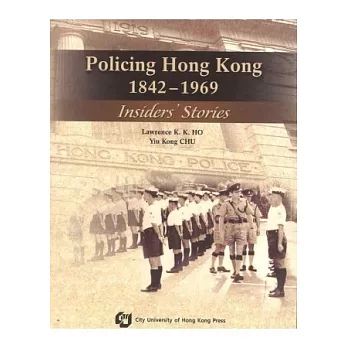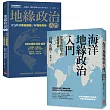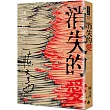Preface
The Hong Kong Police Force has always evoked a mixed image in the minds of Hong Kong residents. Simultaneously, it manages to be strange and alien, yet entirely familiar. On a daily basis, we find ourselves inundated with news stories about how "the cops" tackle crime, and police work is a favourite subject in local movies and television series. In our daily lives, we also see policemen patrolling the streets. However, we seldom have direct contact with the police-the people charged with protecting our property and well-being -and know very few details about the exact nature of their work.
There are not many books on the Hong Kong Police Force. Most are the fruits of academic scholarship and their presentation styles are not friendly for readers who are not in academia. Some are memoirs written by retired expatriate police officers, recording what the authors experienced with the changes in local policing. In recent years, there are more Chinese volumes in the form of autobiographies, anecdotal accounts and records of detective cases, which were increasingly popular with the general public.
We sincerely hope that this book will enjoy wide appeal. This volume encompasses three main features. Firstly, a clear and distinctive orientation towards the police as human beings constitutes the soul of this book. It delineates over a century of the history of the Hong Kong Police Force through the personal experiences and frontline stories of many policemen. During the period from 2003 to 2009, we interviewed eighty retired policemen and policewomen through individual oral history interview sessions and group discussions. These represent different generations, races and ranks and lines of duty. For example, they include an officer who joined the force in 1938, a Pakistani who came to Hong Kong from India onboard a cargo ship in 1952, the inaugural group of policewomen in 1951, policeman on frontline duty in the 1967 riots, and the first Chinese police chief with a university degree who joined the force after graduation in 1972.
Secondly, this book contains a number of photographs of the police at different times. Most of them were provided by the interviewees. These precious photographs cover subjects such as policemen working in Shatin Station in 1924, the official police uniform in the Japanese occupation era, the plain clothes officers in black silky Tang Dynasty suits during the 1940s, the first policewomen armed with a pistol in 1953, the uniformed Staff Sergeant and Detective Staff Sergeant in the 1960s, members of the airborne anti-riot team reaching the roofs of target buildings, and the Marksmen Unit in 1973, and many more. Based on such an invaluable contribution from the interviewees, we offer the reader engagingly presented factual narratives, filled with personal insights and vividly illuminated with historical photographs.
Thirdly, being social scientists devoted to research into policing, we verified and cross-referenced the collected information with official documents and non-official literature. For some seemingly dubious pieces of information, we have done our utmost to ascertain factual accuracy with corroborative evidence or relevant verifications with the persons involved or other knowledgeable senior police officers. While we wrote this book in a less academically-formal and more popular style in order to reach a wider readership, we still insisted on it being a solidly fact-based volume. Hence, this book is intended for the general public and can easily serve as an informative source and as reference material suitable for general and civic education.
In terms of its contents, this volume is divided into three main sections. The first section traces the early development of the Hong Kong Police Force. It exposes the unique features of the multi-ethnic paramilitary team in the earlier colonial days. It then leads the reader to appreciate the police's struggles through Hong Kong's most difficult times. During the dark years of Japanese occupation, how did the local police perform? How did the team rebuild itself after the war? And how did it cope with the turmoil of the 1967 Riots, when the police were fiercely condemned as "yellow-skin colonial running dogs" by the leftist insurgents and pro-Beijing partisans?
The second section focuses on three particularly interesting police departments; the Criminal Investigation Department, the Marine Police, and the Anti-Riot Squad. It also highlights Inspectors, the backbone of the force, and policewomen, the most recently recruited category of police staff.
The third section presents interviews with five special guests: Mr. Au Ting, former Chairman of the Hong Kong Police Old Comrades' Association; Mr. Chan Cheong, former Chairman of the Hong Kong Marine Police Retirees' Association; Mr. David Hodson, former Assistant Commissioner of Police; Mr. Gordon Fung Siu-yuen, former Deputy Commissioner of Police; and Mr. Dick Lee Ming-kwai, former Commissioner of Police. They joined the force in 1948, 1952, 1962, and 1972 respectively. Their personal recollections and lively anecdotes enable the reader to share the fun and challenges as well as the better and harder times of the police in the different eras. Their accounts chart the evolution of the Hong Kong Police Force during the last six decades, years that have also drastically reshaped Hong Kong from a British colony to a world city and Special Administrative Region of the People's Republic of China.
With this book we aim to suit both specialist scholarly interests and popular tastes. Through its pages, readers can enjoy these genuinely amazing and amusing police stories with their accompanying splendid illustrations, but hopefully they will also develop an informed understanding of how the Hong Kong Police Force has been transformed into one of the world's most professional urban police forces today after over a century of hard work and struggle.
Lawrence HO Yiu Kong CHU
June 2012



 天天爆殺
天天爆殺  今日66折
今日66折 

























 博客來
博客來 博客來
博客來 博客來
博客來 博客來
博客來 博客來
博客來